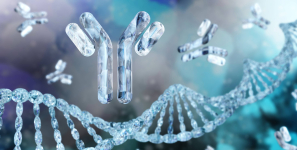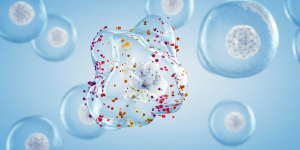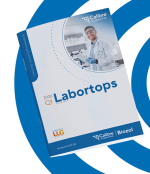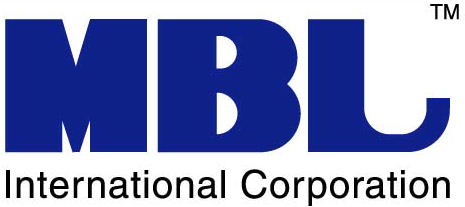Webinars in June
Isotype Control Selection, Spatial Proteomics, Stem Cells
We invite you to join our partners Atlas Antibodies', MBL's, and GeneTex' upcoming scientific webinars. Learn about Isotype Control Selection, Spatial Proteomics in health and disease, and stem cell regeneration.
The Human Protein Atlas -Spatial proteomics in health and disease
The spatial distribution of proteins determines the morphology and function of tissues, cells, and organelles, and knowledge of this spatial distribution is therefore essential to understand the healthy and diseased human body. The Human Protein Atlas (HPA) project is a large-scale initiative aiming at mapping the entire human proteome using antibody-based proteomics and integration of various other omics technologies. The publicly available knowledge resource www.proteinatlas.org has grown into one of the world’s most visited biological databases and contains information on different aspects of the human proteome. Recently, a large effort was put into generation of expression profiles in single cell types, with the possibility to explore mRNA and protein expression in different single cell types across all major human organs. The HPA constitutes an important resource for spatial proteomics, precision medicine efforts and further understanding of human biology, and the publicly available datasets hold much promise for integration with other emerging efforts both at transcriptomic and proteomic level.
In this webinar, Dr. Cecilia Lindskog discusses how spatial proteomics can contribute to further understanding of human biology.
You will learn:
- How the HPA resource can be used to study mRNA and protein expression profiles across tissues, cells, and organelles
- About the importance of stringent antibody validation for reliable protein detection
- How integration of data across platforms and technologies allows for characterizing the human building blocks at higher resolution
 Date & Time: Tuesday, June 14th, 2022, 08:00 am (CEST)
Date & Time: Tuesday, June 14th, 2022, 08:00 am (CEST)
Speaker: Dr. Cecilia Lindskog, Group leader at Uppsala University, Sweden, and head of the Tissue profiling team of the Human Protein Atlas
The Importance of In Vivo Isotype Control Selection in Antibody-Based Studies
Join Dr. Beata Boczkowska, Product Manager, for a live webinar focussing on best practices for the use of isotype controls for in vivo studies.
Isotype control antibodies are essential negative controls for in vivo studies and can play a key role in immunoassays. Researchers with a suitable negative control will accurately discriminate between an antibody binding in an antigen-dependent specific manner from non-antigen dependent mAb binding due to Fc receptors (FcR) or other proteins. This webinar will help establish best practices for in vivo experimental design.
Attend this live webinar for the ability to ask questions and receive answers in real time.
The online webinar will focus on:
- Applications utilizing monoclonal antibodies
- Various isotype antibodies explained
- Best practices for experimental design

Date & Time: Wednesday, June 22nd, 06:00 pm (CEST)
Speaker: Dr. Beata Boczkowska, Product Manager
Restoring stem cell fate and behavior outside their native niche
Adult stem cells reside in defined niches and depend on specialized cues to preserve their identity and instruct behavior. Early in my career, I studied the dynamic interplay between stem cells and their microenvironment in skeletal muscle. Stem cells played executive and adaptive roles, autonomously remodeling physical cues to balance growth and repair while remaining susceptible to inflammatory cues that could promote chronic degeneration. In various tissues, the dissection of stem cell-niche interactions has informed therapeutic strategies that aim to exploit their regenerative potential for a range of conditions, from wounding to aging. In the hair follicle, a particularly rich set of stem cell-niche interactions control self-renewal and differentiation not only to each hair lineage, but can unlock a wound-related plasticity that yields all skin lineages. As a postdoctoral fellow, I became interested in the signals that control stem cell plasticity across tissue compartments during epidermal repair. Timely resolution of this multipotent state has long remained elusive and can act as a barrier to appendage formation in wounded or grafted skin. By leveraging our discovery that hair follicle stem cells exhibit a wound-like epigenetic signature in culture, I identified key niche signals that lie at the intersection between homeostatic regeneration and wound-enabled plasticity. Local production of these signals is dysregulated upon wounding and can be manipulated to push stem cell contribution to hair regrowth or wound re-epithelialization. Outside the niche, temporal control of their activity enabled the ex vivo modeling of stem cell fate decisions normally observed only within the intact hair follicle. Together, this work demonstrates the effectiveness of targeting wound-related niche signals to restore proper stem cell function in the skin. It also establishes a highly tractable platform for the reconstruction and future interrogation of stem cell-niche crosstalk.
Date & Time: Tuesday, June 28th, 04:00 pm (CEST)
Speaker: Matthew Tierney, Ph.D., Postdoctoral Associate (Fuchs Lab), The Rockefeller University, New York
01.06.2022

ChIP-Exo-Seq
Validated Antibodies from Atlas Antibodies

Analytica 2026
Be our guest!

Targeting RNA Editin...
SignalChem’s ADAR Products

Metabolism Assays
Oxidative Stress, Glycolysis & Lipid Metabolism

New year, new Labort...
Up to 80% off labware




.png)